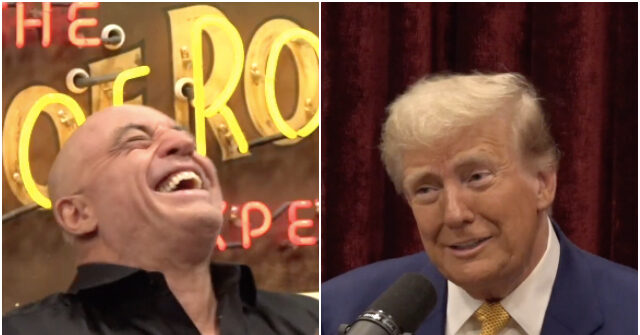The role of stand-up comedians in the political landscape, particularly during Donald Trump’s presidency and re-election campaign, raises intriguing questions about the intersection of entertainment and politics. Trump’s tenure has been punctuated by his status as a comedic target for late-night hosts and sketch shows, yet he has also engaged with a different comedic realm—podcasts and alternative media—where outspoken, often edgy humor has gained traction. Figures like Joe Rogan have become notable for creating platforms that mix humor, casual conversation, and political commentary, which may have inadvertently aided Trump in connecting with key demographics, particularly young male voters. Many of these comedians, regardless of their personal political affiliations, have targeted the progressive left, aligning with themes that resonate with Trump’s base.
Seth Simons describes these modern comedians as a blend of entertainers and influencers, suggesting a wave of political discourse that flows through a comedic lens—often comprising of roast-style humor and satirical takes on prevailing ideologies. While some prominent comics, such as Dave Chappelle and Bill Burr, have courted controversy by mocking progressive movements, they have not explicitly endorsed Trump. However, their routines provide fertile ground for the anti-“woke” narrative that Trump’s campaign adeptly leveraged. This rise of “anti-woke” sentiment, especially during a time when many comedians pushed against progressive values, thus creates a comedic backdrop that benefits Trump’s messaging while simultaneously allowing comedians to distance themselves from overt political loyalties.
Trump’s strategic engagement with popular comedians and influencers underscores a calculated attempt to appeal to younger audiences, particularly young men. His interviews on platforms like Rogan’s podcast allowed him to diverge from traditional political narratives, instead positioning himself in discussions that blended humor with lighter topics. Rogan’s show, which caters to a more eclectically interested audience spanning from political discussions to mixed martial arts, creates a unique space where Trump’s provocations can be interpreted through the lens of humor rather than rigorous political analysis. By aligning with these figures, Trump not only reaches younger voters who might be disillusioned with mainstream media but also capitalizes on the desire for authenticity that characterizes podcasting.
Moreover, the evolution of comedic commentary has shifted distinctly rightward, as illustrated by changes in the media landscape since the Johnny Carson era. With the rise of programs hosted by figures like Jon Stewart and Stephen Colbert, who lean left, a gap emerged that Joe Rogan and similar personalities have successfully filled. These new comedians often capitalize on a distinct anti-establishment sentiment, which appeals to audiences feeling alienated from mainstream political discourse. As traditional late-night shows have become increasingly tied to Democratic narratives, comedians like Rogan and his contemporaries have leaned into a more provocative and often skewed representation of comedy that caters to conservative audiences.
Trump’s style of communication—marked by off-the-cuff remarks and laid-back speaking methods—reflects stand-up’s influence on his rhetoric. His presentations mirror comedic structures, replete with punchlines and callbacks, often rendering controversial statements palatable for listeners. Professors and media analysts have posited that Trump’s comedic touch enables him to engage even when expressing extreme ideas, blurring the lines between political rhetoric and entertainment. The persistence of this approach raises challenges for journalists tasked with conveying the seriousness of his remarks while grappling with the frivolity that humor can impart.
Lastly, the tumultuous relationship between comedians and political figures underscores a complex negotiation of boundaries within comedy. Instances of offensive humor, such as those made during a Trump rally by a comedian, illustrate the risks associated with navigating this field. Despite occasional backlash, Trump’s ability to rally audiences, sometimes through humor that starkly contrasts with societal values, suggests a unique dynamic whereby a politician harnesses the unpredictable nature of comedy. Critics note that while certain jokes may flop, others resonate deeply, contributing to a persistently engaged and loyal base while subverting conventional political discourse.
Ultimately, the influence of stand-up comedians and alternative media platforms on Trump’s political narrative is profound and multifaceted. As entertainers, they occupy a space that allows for political ideas to be disseminated—and sometimes distorted—through humor. This evolution forms a critical part of the contemporary political fabric, where the roles of comedian, critic, and supporter frequently intertwine, revealing the significant impact that humor can have on shaping public perception and electoral outcomes. The exploration of comedy’s role in politics challenges us to consider how jokes evolve into serious conversations, ultimately asking whether laughter can indeed become a formidable political tool.

